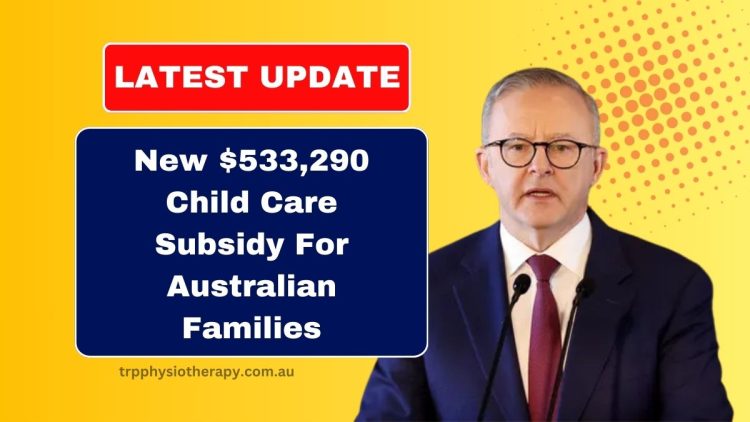In a significant move to alleviate the financial burden of child care, the Australian government has introduced a substantial subsidy program. This initiative aims to make early childhood education more accessible and affordable for families across the nation.
Purpose of the Subsidized Child Care Program
The escalating costs of child care in Australia have made it increasingly challenging for families to afford quality care.
The government’s subsidized child care program seeks to address this issue by providing financial assistance, ensuring that working parents can balance their professional and family responsibilities without undue financial strain.
Who Qualifies for the Subsidy?
Eligibility for the subsidized child care program is determined based on several criteria:
- Income Level: The program primarily targets low to middle-income families.
- Parental Activity: Families where parents are employed, studying, or participating in training programs are eligible.
- Child Care Service: Children must be enrolled in approved child care centers or services.
- Residency and Age Requirements: Families must meet residency criteria, and children must be under a certain age limit to qualify.
It’s essential to verify specific income limits and eligibility conditions through official government sources to ensure compliance.
Subsidy Amount and Structure
The subsidy amount varies depending on the family’s income bracket and the number of hours the child spends in care.
Generally, families with lower incomes receive a higher percentage of subsidy, covering a more substantial portion of child care fees. This structure aims to make child care more affordable, particularly for those who need it most.
How to Apply and Receive Funds
Eligible families should apply for the subsidy through the government’s child care subsidy portal. Once approved, funds are directly transferred to child care providers, reducing out-of-pocket expenses for parents.
This streamlined process ensures timely financial relief and simplifies the subsidy distribution.
Additional Initiatives to Support Families
Beyond the subsidy, the government has introduced other measures to support families:
- Three-Day Guarantee: Starting January 2026, all eligible families will receive three days of subsidized care each week, regardless of their work or study status. This policy replaces the previous activity test, making child care more accessible for all.
- Investment in Child Care Infrastructure: A $1 billion fund has been allocated to build or expand over 160 child care centers, particularly in underserved areas. This initiative aims to increase the availability of quality child care services nationwide.
Key Features of the Child Care Subsidy Program
| Feature | Details |
|---|---|
| Subsidy Amount | Up to $533,290, varying by income and care hours |
| Eligibility Criteria | Income level, parental activity (work/study/training), enrollment in approved child care services |
| Application Process | Apply through the government’s child care subsidy portal; funds paid directly to providers |
| Three-Day Guarantee | Starting January 2026, three days of subsidized care per week for all eligible families |
| Infrastructure Investment | $1 billion to build/expand over 160 child care centers in underserved areas |
The Australian government’s introduction of the $533,290 subsidized child care program represents a significant investment in the nation’s future.
By easing the financial burden on families, the program aims to provide all children with access to quality early education, supporting their development and preparing them for future success.
FAQs
What is the maximum income to qualify for the child care subsidy?
Families earning up to $533,280 annually are eligible for the subsidy.
When will the three-day guarantee for subsidized child care begin?
The three-day guarantee is scheduled to commence in January 2026.
How can families apply for the child care subsidy?
Families can apply through the official government child care subsidy portal.

